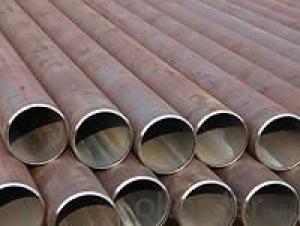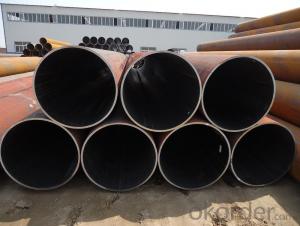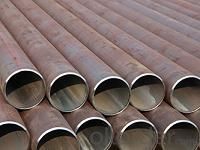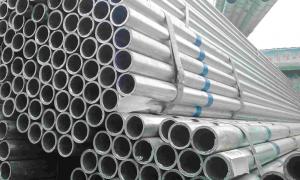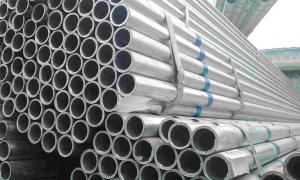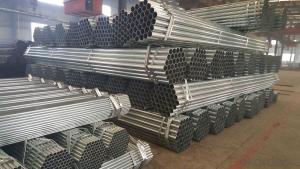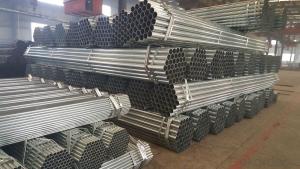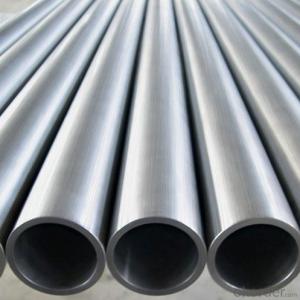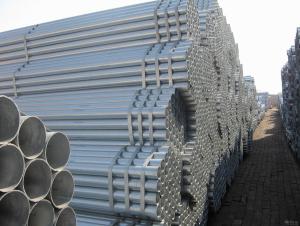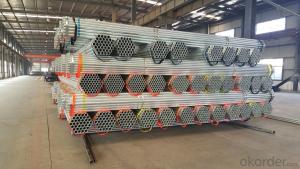EXPANDED STEEL PIPE ASTM A 53/ASTM A36 /ASTM A500
- Loading Port:
- Tianjin
- Payment Terms:
- TT OR LC
- Min Order Qty:
- 20 m.t.
- Supply Capability:
- 10000 m.t./month
OKorder Service Pledge
OKorder Financial Service
You Might Also Like
Product Name | Expanding Pipe \ Longitudinally welded steel pipe / ERW Steel pipe / Carbon steel pipe/ HFW steel pipe | |
Size | OD | 273mm-820mm |
Thickness | 6.5mm-20mm | |
Length | 6m-20m | |
Steel Material | Q195/Q215A/Q215B/Q235A/Q235B/Q345A /Q345B | |
Standard | GB/T3091 GB/T9711.1/ASTM A53/API 5L /ASTM A252 | |
Usage | Low Pressure Fluid (Water, Gas) Transmission | |
Surface | Bare Pipe or Black Painting | |
Protector | Bare or Plastic cap | |
Package | Bundles, Bulk | |
Inspection | With Hydraulic Testing, Ultrasonic testing or X-ray Test | |
Certificate | API and ISO9001;2000 | |
Date of Delivery | Less Than 15/20/25/30/40/50/60 Days According To The Quantity | |
Payment term | L/C or T/T | |
Port of Shipment | Xingang,China | |
- Q: How are steel pipes used in the construction of gas distribution networks?
- Steel pipes are commonly used in the construction of gas distribution networks due to their durability, strength, and ability to withstand high pressure. These pipes are used to transport natural gas from the source to homes, businesses, and industries. The steel pipes are laid underground and connected using fittings and valves to create a network that efficiently distributes gas. It ensures a safe and reliable delivery of gas to consumers while minimizing the risk of leaks or accidents.
- Q: Can steel pipes be used for fire sprinkler systems?
- Yes, steel pipes can be used for fire sprinkler systems. Steel pipes are commonly used in fire sprinkler systems due to their durability, high heat resistance, and ability to withstand high water pressure. They are also cost-effective and widely available, making them a popular choice for such systems.
- Q: How do you solder purple copper plate and steel tube?
- When the copper and copper tube size is too large, argon welder welding, DC argon arc welding machine, of course, when DC argon arc welding welding belongs to welding, argon arc welding of brass with Wei Odin 204S welding, the argon arc welding wire for gas welding is not brass wire, this concept must be clear, the wire diameter of 2 80-120A, welding current parameters, if the copper thickness is relatively thick, with a red copper welding after welding preheating in advance.
- Q: SC15 what does galvanized steel pipe look like?
- DN15 galvanized pipe, nominal diameter of 15mm
- Q: How are steel pipes used in the construction of geothermal power plants?
- Steel pipes are used in the construction of geothermal power plants for various purposes. They are primarily used to transport and circulate the geothermal fluid, which carries the heat from the underground reservoir to the surface. These pipes are typically made of high-quality steel that can withstand the high temperatures and corrosive nature of the geothermal fluid. Additionally, steel pipes are used in the construction of injection wells, where cool water or other fluids are injected back into the reservoir to maintain pressure and sustain the heat extraction process. Overall, steel pipes play a crucial role in the efficient and reliable operation of geothermal power plants.
- Q: What is the weight of steel pipes?
- The weight of steel pipes can vary depending on their size, length, and thickness. However, on average, steel pipes typically weigh between 1.1 to 1.4 pounds per foot.
- Q: How are steel pipes used in the construction of bridges?
- Steel pipes are commonly used in the construction of bridges for various purposes such as supporting the bridge structure, providing stability, and facilitating the passage of fluids like water or gases. Steel pipes are used as piers or piles to support the weight of the bridge, acting as strong and durable foundations. They are also used for constructing the bridge's framework, such as beams and trusses, which provide the necessary strength and load-bearing capacity. Additionally, steel pipes may be used as conduits for utilities like water, gas, or electrical cables, allowing for efficient transportation across the bridge.
- Q: What is galvanized steel pipe?
- Galvanized steel pipe is a type of steel pipe that has been coated with a layer of zinc, which helps protect it from corrosion and rust. This coating also increases the pipe's longevity and makes it suitable for various applications, including plumbing, construction, and outdoor structures.
- Q: What's the difference between hot dip galvanizing and cold galvanizing? Which kind of galvanizing method is good?
- There are two kinds of hot dip galvanizing, zinc plated and non galvanized. The flowers must be hot-dip galvanized, without flowers, similar to galvanized.
- Q: What are the different surface finishes available for steel pipes?
- There are several different surface finishes available for steel pipes, including mill finish, galvanized finish, painted finish, and polished finish.
Send your message to us
EXPANDED STEEL PIPE ASTM A 53/ASTM A36 /ASTM A500
- Loading Port:
- Tianjin
- Payment Terms:
- TT OR LC
- Min Order Qty:
- 20 m.t.
- Supply Capability:
- 10000 m.t./month
OKorder Service Pledge
OKorder Financial Service
Similar products
Hot products
Hot Searches
Related keywords
